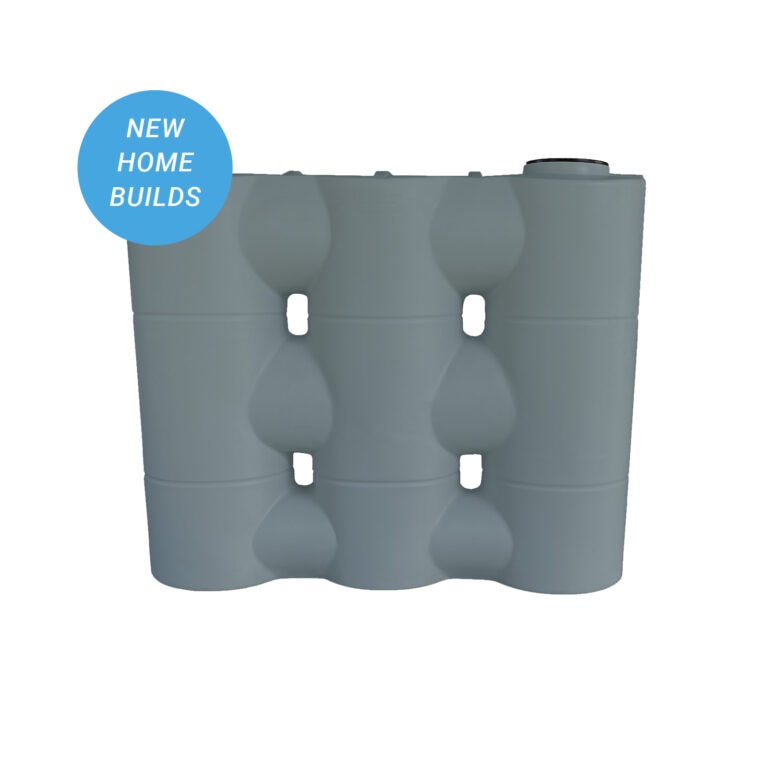Slimline Water Tanks: Space-Saving Solutions for Little Characteristics
Wiki Article
Discovering the Numerous Uses Rain Containers for Residential and Commercial Residences
As the international focus on sustainable living methods proceeds to escalate, the utilization of rainwater storage tanks in both residential and business settings has actually emerged as an essential solution. The complex uses of rainwater containers provide an engaging instance for their adoption, not just as a functional water-saving procedure however additionally as a testament to liable source administration.Advantages of Using Rain Containers
Utilizing rain containers supplies numerous benefits for both families and communities in regards to water conservation and sustainability. One of the essential benefits of using rain tanks is the significant decrease in reliance on keys supply of water - Slimline water tanks. By catching and storing rainwater for later use, individuals and areas can decrease their demand for cured water, eventually alleviating the burden on water treatment centers and decreasing energy intake related to water transportation and treatment
Furthermore, rain collecting via storage tanks supplies a dependable different water resource throughout times of water constraints or lacks. This kept rainwater can be used for various non-potable objectives such as irrigation, flushing commodes, and cleaning clothes, decreasing the pressure on traditional water resources. Furthermore, making use of rain tanks can result in cost savings for both households and areas by lowering water expenses and decreasing the need for costly infrastructure growths to satisfy expanding water demands.
In significance, the utilization of rain storage tanks supplies a lasting and eco-friendly method to water administration, profiting both individual users and the broader community in regards to water conservation, cost-efficiency, and durability.
Rainwater Container Use in Irrigation
Provided the benefits of rain containers in conserving water sources and minimizing dependence on keys water supply, a considerable application hinges on making use of kept rain for watering objectives - Slimline water tanks. Rainwater gathering systems can efficiently collect and store rain, supplying a lasting water source for sprinkling yards, lawns, and agricultural areas. By using rainwater for watering, building proprietors can decrease their reliance on cured water sources, causing cost savings and ecological benefits
Among the primary advantages of utilizing rainwater for irrigation is its pureness. Rainwater is normally soft and without the chemicals and additives often discovered in keys water, making it suitable for nourishing plants without the risk of damaging impacts. Furthermore, rain is at ambient temperature, which can profit plant growth by staying clear of temperature shocks that can occur with chilly mains water.
Rain Storage Tanks for Toilet Flushing

Carrying out rainwater tanks for commode flushing is an affordable and environmentally pleasant method that can be conveniently integrated right into both household and business homes. The stored rainwater can be utilized to flush toilets by attaching the tank to the my blog existing plumbing system. This straightforward yet effective solution can considerably decrease water usage in a building, specifically in locations where water scarcity is a concern.

Including Rainwater Tanks in Landscape Design
A reliable approach for enhancing sustainability in landscaping entails integrating rainwater storage tanks to enhance water usage and promote environmentally friendly practices - Slimline water tanks. Including rainwater storage tanks in landscape design offers numerous advantages for both property and commercial residential or commercial properties. These tanks can record and keep rainwater drainage from roofings, which can then be utilized for sprinkling gardens, grass, and plants. By using rain for watering purposes, property owners can reduce their dependence on metropolitan water sources, leading to set you back financial savings and conservation of precious water sources.Along with offering a sustainable water source for landscape design demands, rainwater containers can additionally help in taking care of stormwater runoff. By capturing rain that would otherwise flow into storm drains, these containers can mitigate site disintegration, decrease flooding dangers, and stop air pollution of all-natural water bodies. Moreover, integrating rain containers in landscape design can add to the total aesthetic charm of the residential property, showcasing a dedication to environmental stewardship.
Commercial Applications of Rainwater Tanks
Utilizing rainwater containers in commercial settings uses a sustainable service for water management and conservation, profiting businesses and the setting alike. Business applications of rain tanks are varied and progressively prominent due to the expense savings and ecological benefits they offer. One essential business usage is for watering objectives, where collected rain can be used to water landscape design, gardens, and agricultural fields surrounding industrial buildings. This can lead to substantial reductions in water expenses and reliance on local water resources.Additionally, rain accumulated in tanks can be treated and utilized for non-potable functions within commercial buildings, such as flushing commodes, cleaning, and cooling systems. Generally, the consolidation of rainwater storage tanks in commercial settings provides a useful and environmentally liable approach to water management.
Conclusion
From watering to bathroom flushing and landscape design, the use of rainwater tanks can help conserve water resources and decrease water bills. In general, the convenience and sustainability of rainwater containers make them a valuable financial investment for any property owner looking to increase water effectiveness.Report this wiki page